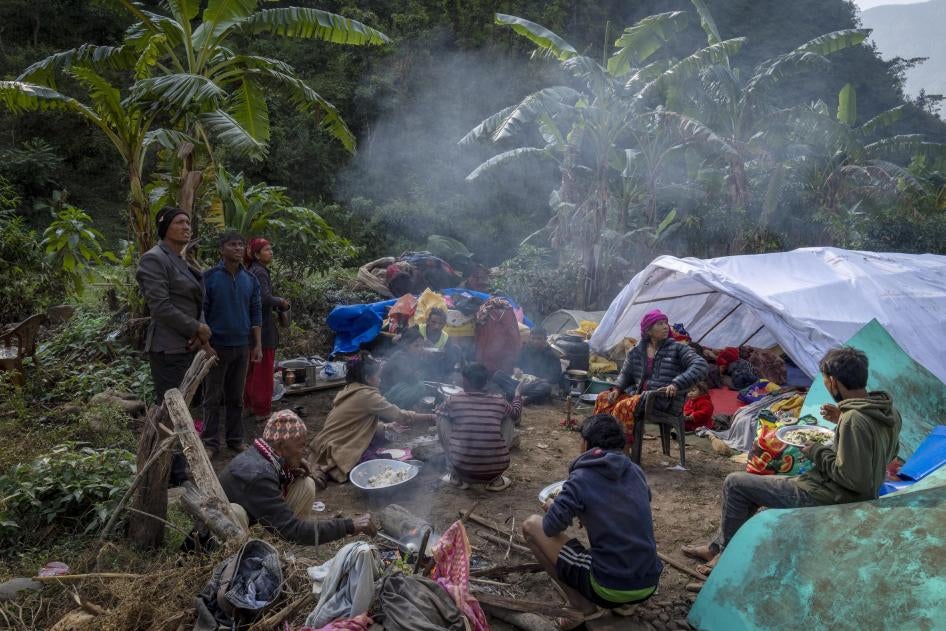More than a month after an earthquake struck Nepal’s remote Karnali province, people are dying in the cold because the government has failed to meet the basic needs of survivors. Tens of thousands of families are still sheltering under tents and thin tarpaulins as winter sets in.
The Nepali government, along with its international partners supporting development and humanitarian work, need to step up efforts to provide shelter, sanitation, and necessities so people survive the winter.
The 6.4 magnitude shock on November 3 killed 154 people. According to local authorities in Jajarkot district, thousands of tons of food stored in people’s homes was lost in the disaster. Only a few poorly built roads serve the mountainous region, which is chronically neglected by the government and has among the worst development indicators in the country.
According to reports, at least 32 people, including at least four young children, have recently died, many of them of pneumonia due to the cold. A doctor who recently returned from the region has warned of a possible cholera outbreak.
Nepal’s government has a duty under its constitution and international human rights law to ensure people’s needs are met, including adequate shelter, food, and medical care. Efforts to provide relief so far have been inadequate, poorly coordinated, and slow. There have been allegations of political interference in the distribution of aid. According to reports, only a few hundred shelters have been constructed, mainly through the efforts of private organizations, because funds allocated by the government have not been received by local authorities.
It has been less than a decade since Nepal suffered a devastating earthquake that killed almost 9,000 people and left millions homeless in 2015. The government’s disaster relief was slow and poorly designed. Three years after the quake, only 16 percent of US$4.2 billion pledged in international aid had been spent. Thousands of people spent years in temporary shelters due to failed reconstruction policies.
The government and its international partners seem to have learned little from that experience. After survivors’ immediate needs are met, the government needs to create policies that expedite reconstruction instead of delaying it and help with livelihoods.
Millions of aid dollars have been spent over many years on disaster preparedness in Nepal. In a country that suffers frequent natural disasters, coordinated and effective mechanisms for delivering relief and supporting longer-term recovery are way overdue.









